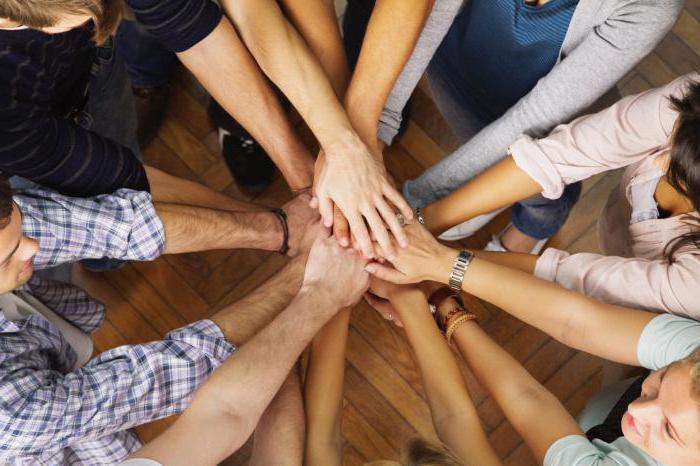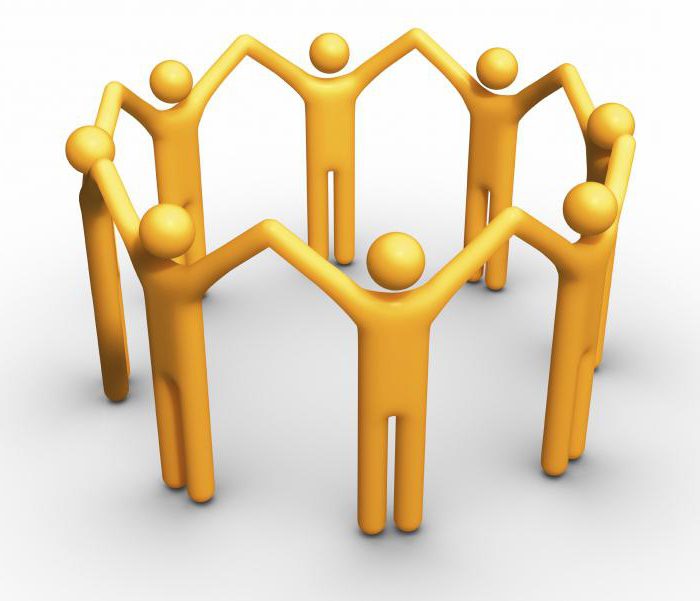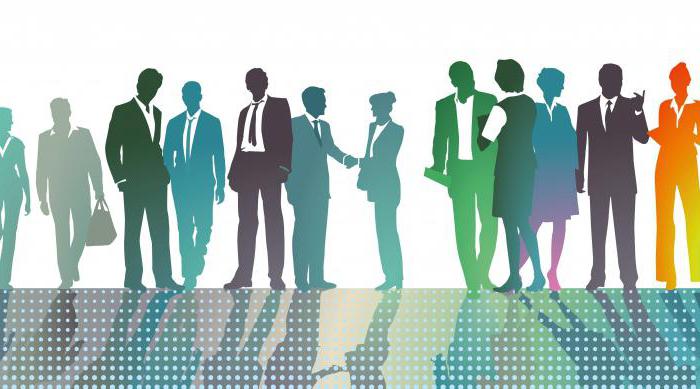Every day, people interact with each other through short-term and close communication, but none of them thinks that each fleeting dialogue and a five-minute meeting are an integral part of the development of society. Social relations are a set of interactions between people, groups and the state, social classes that arise according to the type of activity, the characteristics of the environment of people, their interests and goals. Another name for this kind of interaction is social relations.

Structure
The system of social relations includes a dialogue between individuals and groups, their joint activity, carried out due to the unevenly distributed social values. Due to the uneven distribution, social ties are formed, for example, such as: love, friendship, power, economic relations. Depending on the personal qualities of each individual, certain interactions are formed, from which a close circle of people is subsequently created.
For the normal development of social relations, at least 2 people are needed, since the main engine and connecting link in communication is dialogue. Relations in society can develop both positive and negative (social conflicts).
Positive relationship
Relationships that carry positive emotions and complete (partial) satisfaction of the needs of several individuals include: family (marriage, kinship) ties, love (mutual), friendships based on full trust and mutual assistance, partnership.
Negative relationship
The connections that destructively affect the human psyche, his self-esteem, personality and self-esteem, as well as the health of society include: total (hidden or overt) dependence on a person or group of people, fanaticism, worship of a leader.
Although psychologists note that such a relationship can be not only negative, but also positive. For example, a small child is completely dependent on their parents, and they, in turn, are also dependent to one degree or another on their baby.

Signs
Social relations are a manifestation of the individual as such, during everyday interactions, the personal self is often hidden under the patterned, established and accepted by the person behavior. This helps to create certain “labels” that are often used by society. For example, a person in a workplace with colleagues behaves modestly and restrainedly, does not be rude and does not argue with his superiors. People around him begin to consider him a "mumble", a weakling and a coward. At the same time, next to close people, the personality of this person is fully revealed, and he turns out to be strong, able to stand up for himself and his family, to show firmness if necessary.
Signs of social relations in society are established, well-coordinated relations with someone from the environment of a person. It can be negotiations at work, meetings with partners or colleagues, friends, family “gatherings”. At the same time, even short-term communication in the form of a standard “hello”, told to a friend, is already a sign of social relations.

Kinds
Social relations is a complex concept that includes several types of interactions, divided by:
- To subjects. This category includes: international, mass, moral, individual, aesthetic, social relations in society between individuals and groups.
- Objects.The following types are distributed among the objects: family ties (family-household), religious relations, economic and political interactions, legal ones.
- Modalities. This subspecies is directly related to the emotional state of a person, it includes: rival and partnership relations, conflict and subordination.
- Formalities. According to formalization, social ties are divided into: informal (unofficial) and formal (official). Such relationships can be found among subordinates and their superiors, managers and lower-ranking individuals.

The choice of a person’s behavior in one way or another is significantly affected by his physical and mental health, as well as a number of factors: level of education, family, and field of activity. Sometimes there is a duality of relationships, since many of them are interconnected.
The most common types
Social social relations in society can develop only due to complete reciprocity, however, it is not necessarily mutually beneficial for both sides. For example, one person wants to “bind” another to himself through coercion and imposing unnecessary joint activities, and the second repels the first, not needing him, provoking a quarrel. In sociology, four types of frequently encountered relationships are defined: conflict, rivalry and cooperation, full or partial dependence.

Conflict
Social relations are not only the positive interaction of groups and individuals, but also conflict situations. Conflict occurs in almost any social sphere environment, its development depends on human values, morality, education, emotionality, psychological state. Sometimes a social conflict can develop into military action, assault. This directly depends on the current situation and its magnitude.
Addiction
Social dependence is the dominance of one of the parties to the relationship, its actions and instructions entail the actions of the other, weaker side. Mainly interdependent relations are found, such as: parents-children, teacher-student, state-neighboring countries. Also, social dependence is observed in groups consisting of people in a low position and people with a higher status. For example, subordinates are completely dependent on their leaders, and in politics, people in the legal and constitutional plan depend on the ruling people.
Rivalry
Market and socio-economic relations cannot exist without competition and rivalry, since these relationships are their basis. Rivalry is a kind of competition, the struggle with the use of various methods and means for material wealth, capital, resources or power, a high position in society. This type of relationship is formed under the condition of strong negative feelings and emotions (hatred, hostility, envy, fear) caused by a competitor in a person (group of people), and an irresistible desire to be the first at any cost to work ahead of the curve.
Cooperation
Mutual assistance, partnerships - all this is cooperation. In relationships of this kind, the prerogative is to achieve a common goal. Persons united by cooperation take into account not only their desires, but also the needs of partners and partners. Participants usually have common interests, values that contribute to joint fruitful activity.

What are the most preferable relationships in managing society?
For the normal functioning of control, the prerogative is considered the social relations of people based on any impact on the person. In a democratic society, legal ties, respect for the individual and individual freedoms, and the development of love for the motherland come first.
Power, submission, domination, dependence, dominance, instilling fear - all these moments can be seen in the official, rival, political, economic and legal social relations in a society ruled by dictators. Such a model of social relations leads to an increase in tension in society, frequent conflicts and outbreaks of discontent of the middle and lower classes.








